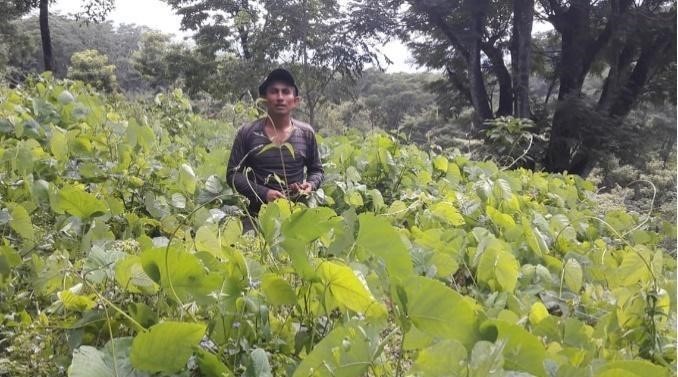
Crop Diversification Supports Food Security
Luís lives in the mountainous department of Matagalpa on land that has been in his family for generations. He remembers his grandfather telling stories about when the farm was still fertile. When it came time for Luís to farm it, the soil was so degraded he was forced to rent elsewhere in order to get decent yields of the area’s traditional crops of corn and beans. The loss of fertility came from years of over-tilling, slash and burn practices, over-using chemicals like weed killers, and allowing over-grazing of cattle that further compacted the soil.
Luís listened to the agronomists sent by local partner Acción Médica Cristiana (AMC) and agreed to try out a new way of planting on a half acre of his land. He says, “I thought it was a sacrifice. It took time and planning away from working on my rented land.” Nonetheless, he planted coffee, yuca (a starchy tuber also known as cassava, manioc, or tapioca), cocoa, plantains, and pigeon peas using a diversified agroforestry method. A year later, he says that that half acre has brought great benefit to the family.
“We now see the value in crops that we didn’t grow before,” reports Luís. “Instead of buying yuca, we eat our own, and can even sell it when we need some money. I’ve got single plants that have produced 25 pounds of yuca! This climate-smart farming has taught us that corn and beans are not the best way of surviving. We´ve changed our way of cultivating the land. Diversifying has allowed us to reduce the agrochemicals we are buying by 50% and we are replenishing our soil. This experience has completely changed the expectations we have for our life. As we diversify our farm, we have hope, because even in times of crisis like drought, flooding, insects or plant diseases, there will always be something to eat here.”
Nicaragua Matagalpa Program
Led by World Renew and Local Partner Acción Médica Cristiana (AMC)
